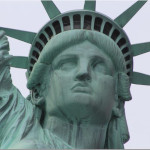What is liberal democracy?
- A direct democracy or pure democracy is a type of democracy where the people govern directly. It requires wide participation by all citizens in day-to-day politics.
- A representative democracy is an indirect democracy where sovereignty is held by the people’s representatives.
- A liberal democracy is a representative democracy in which individual rights and freedoms are officially recognized and protected, usually by a constitution, and the exercise of political power is limited by the rule of law.
- An illiberal democracy has weak or no limits on the power of the elected representatives to rule however they please.
- A representative democracy is an indirect democracy where sovereignty is held by the people’s representatives.
A liberal democracy is a representative democracy in which the ability of the elected representatives to exercise decision-making power is subject to the rule of law, and usually moderated by a constitution that emphasizes the protection of the rights and freedoms of individuals, and which places constraints on the leaders and on the extent to which the will of the majority can be exercised against the rights of minorities.
The rights and freedoms protected by the constitutions of liberal democracies are varied, but they usually include most of the following: rights to due process, privacy, property and equality before the law, and freedoms of speech, assembly and religion. In liberal democracies these rights (also known as “liberal rights”) may sometimes be constitutionally guaranteed, or are otherwise created by statutory law or case law, which may in turn empower various civil institutions to administer or enforce these rights.
Liberal democracies also tend to be characterized by tolerance and pluralism; widely differing social and political views, even those viewed as extreme or fringe, are permitted to co-exist and compete for political power on a democratic basis. Liberal democracies periodically hold elections where groups with differing political views have the opportunity to achieve political power. In practice, these elections are nearly always won by groups who support liberal democracy; thus the system perpetuates itself.
The term “liberal” in “liberal democracy” does not imply that the government of such a democracy must follow the political ideology of liberalism. It is merely a reference to the fact that the initial framework for modern liberal democracy was created during the Age of Enlightenment by philosophers advocating liberty. They emphasized the right of the individual to have immunity from the arbitrary exercise of authority. At present, there are numerous different political ideologies that support liberal democracy. Examples include conservatism, Christian Democracy, social democracy and some forms of socialism. A liberal democracy may also take the form of a constitutional republic or a constitutional monarchy.
Adapted from https://www.cs.mcgill.ca/~rwest/wikispeedia/wpcd/wp/l/Liberal_democracy.htm, https://en.wikipedia.org/wiki/Types_of_democracy, and https://www.lexico.com/definition/liberal_democracy
